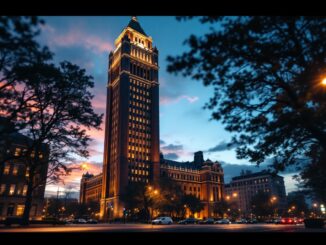The future of the Chagos Islands deal hangs in the balance as new administrations reassess terms.

Topics covered
The recent agreement between the United Kingdom and Mauritius regarding the sovereignty of the Chagos Islands has come under scrutiny following significant political changes in both nations. The deal, which involves the transfer of sovereignty of the Chagos Islands to Mauritius while securing a 99-year lease for the UK-US military base at Diego Garcia, is now at risk due to differing political priorities.
Political shifts complicate the agreement
In October 2024, the UK and Mauritius reached a landmark agreement concerning the Chagos Islands, a strategic cluster of islands located in the Indian Ocean. However, the political landscape has shifted dramatically since then. Following a change in government in Mauritius, Prime Minister Navinchandra Ramgoolam has reopened negotiations, seeking more favorable terms and increased financial compensation for the lease.
This has raised concerns about the viability of the original agreement.
Moreover, the recent election of Donald Trump as President of the United States has further complicated matters. Trump’s administration is reportedly critical of the deal, leading UK Foreign Secretary David Lammy to assert that the agreement would not proceed without US approval. In an interview with ITV News, Lammy emphasized the importance of US support, stating, “If President Trump doesn’t like the deal, the deal will not go forward.” This statement underscores the intertwined military and intelligence interests shared by the UK and the US, particularly concerning the Diego Garcia base.
Financial implications and criticisms
The financial aspects of the Chagos Islands deal have also drawn criticism. Reports indicate that the UK is expected to pay approximately £90 million annually for the lease, amounting to around £9 billion over the duration of the agreement. However, the new Mauritian government has demanded significantly higher compensation, with figures reaching up to £800 million per year, along with annual inflation adjustments and reparations. This escalation in costs has raised alarms among UK officials and critics alike.
Dame Priti Patel, the Shadow Foreign Secretary, has labeled the deal as “economically illiterate,” arguing that it places an undue financial burden on taxpayers at a time when public spending is already under pressure. Patel has called for transparency regarding the deal’s costs, urging the government to clarify the financial implications of what she describes as a “surrender” of sovereignty.
Strategic concerns in the Indo-Pacific
Critics of the Chagos Islands deal have voiced concerns about the potential impact on British and Western security interests in the Indo-Pacific region. The military and intelligence presence in the Chagos Islands is viewed as crucial for countering Chinese influence in the area. As geopolitical tensions rise, the Starmer government faces mounting pressure to ensure that the sovereignty of the islands is settled in light of international judgments that could affect military operations.
Despite the challenges, Lammy remains optimistic about the arrangement, asserting that it represents “the best deal” for both the UK and Mauritius. However, with new administrations reassessing the agreement, the future of the Chagos Islands deal remains uncertain. As British Prime Minister Sir Keir Starmer prepares for his visit to the United States, the outcome of these negotiations will be closely watched by both domestic and international observers.




